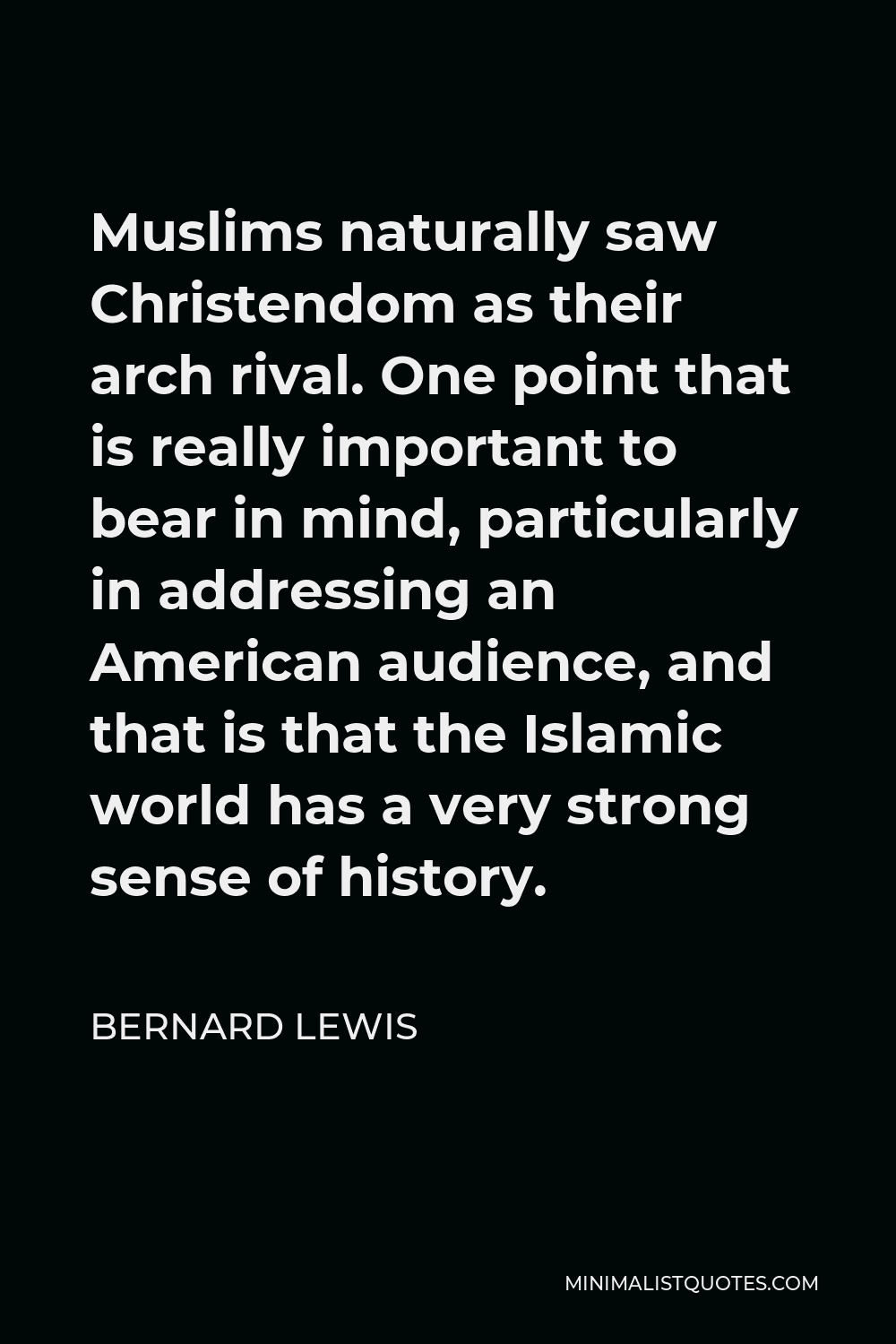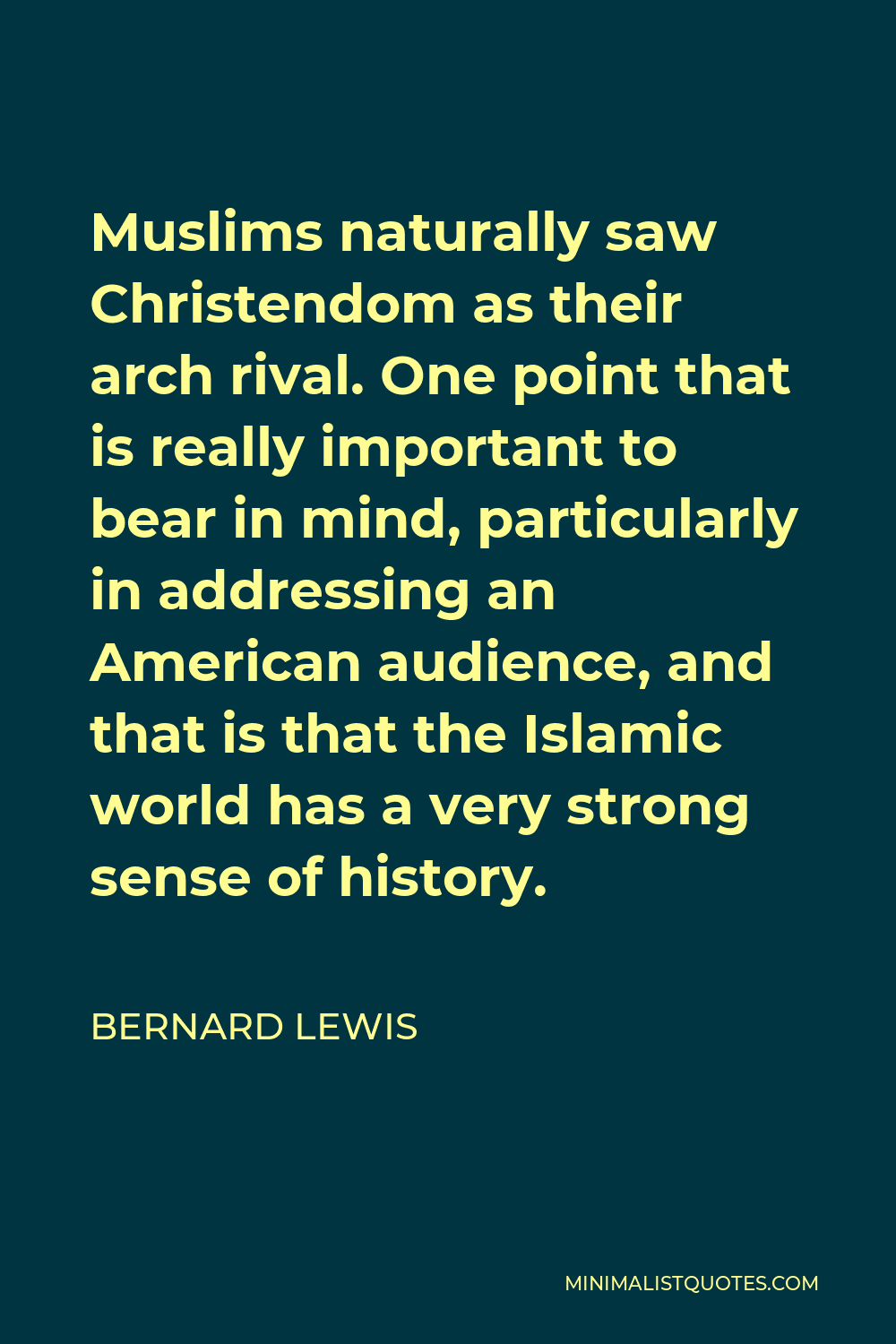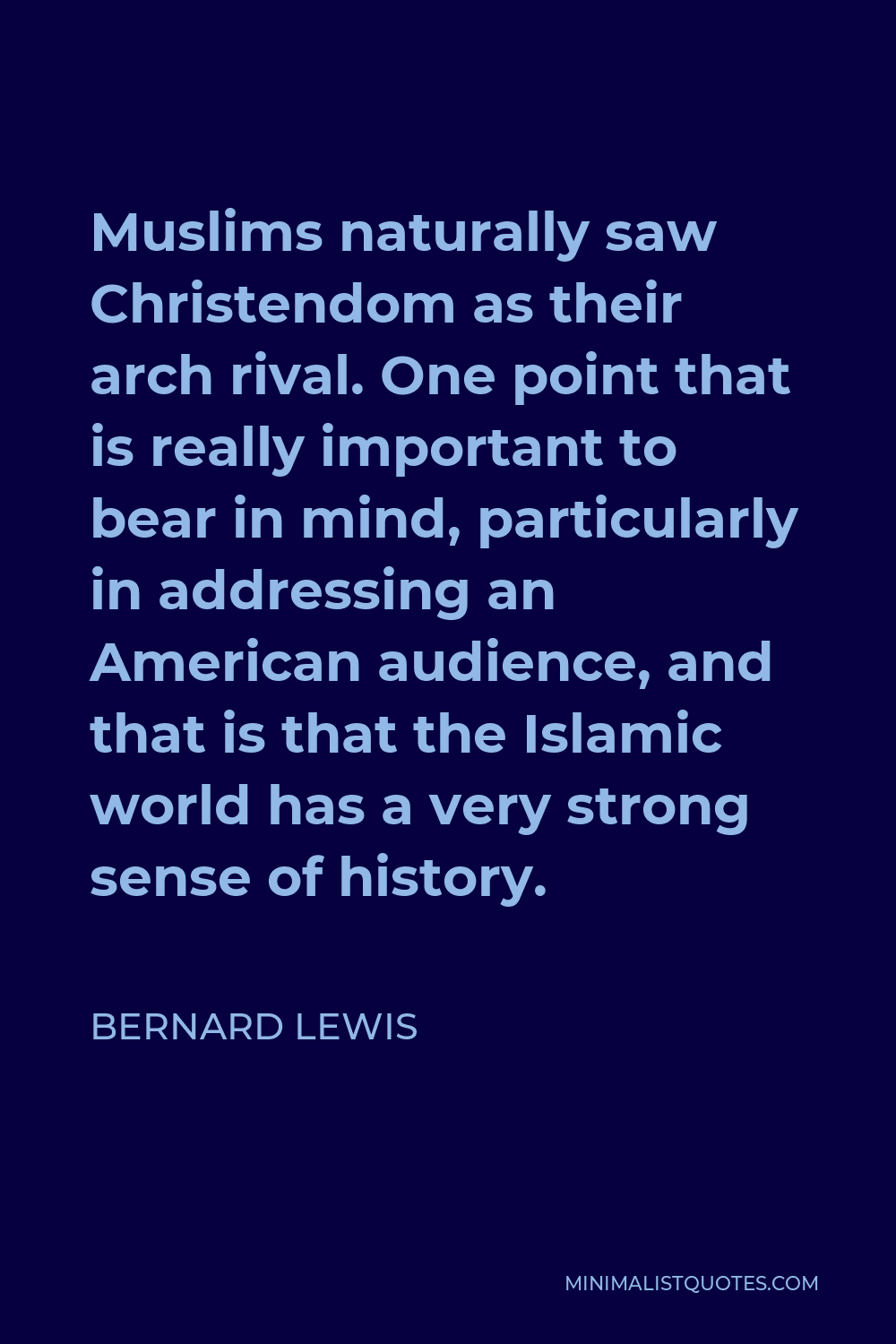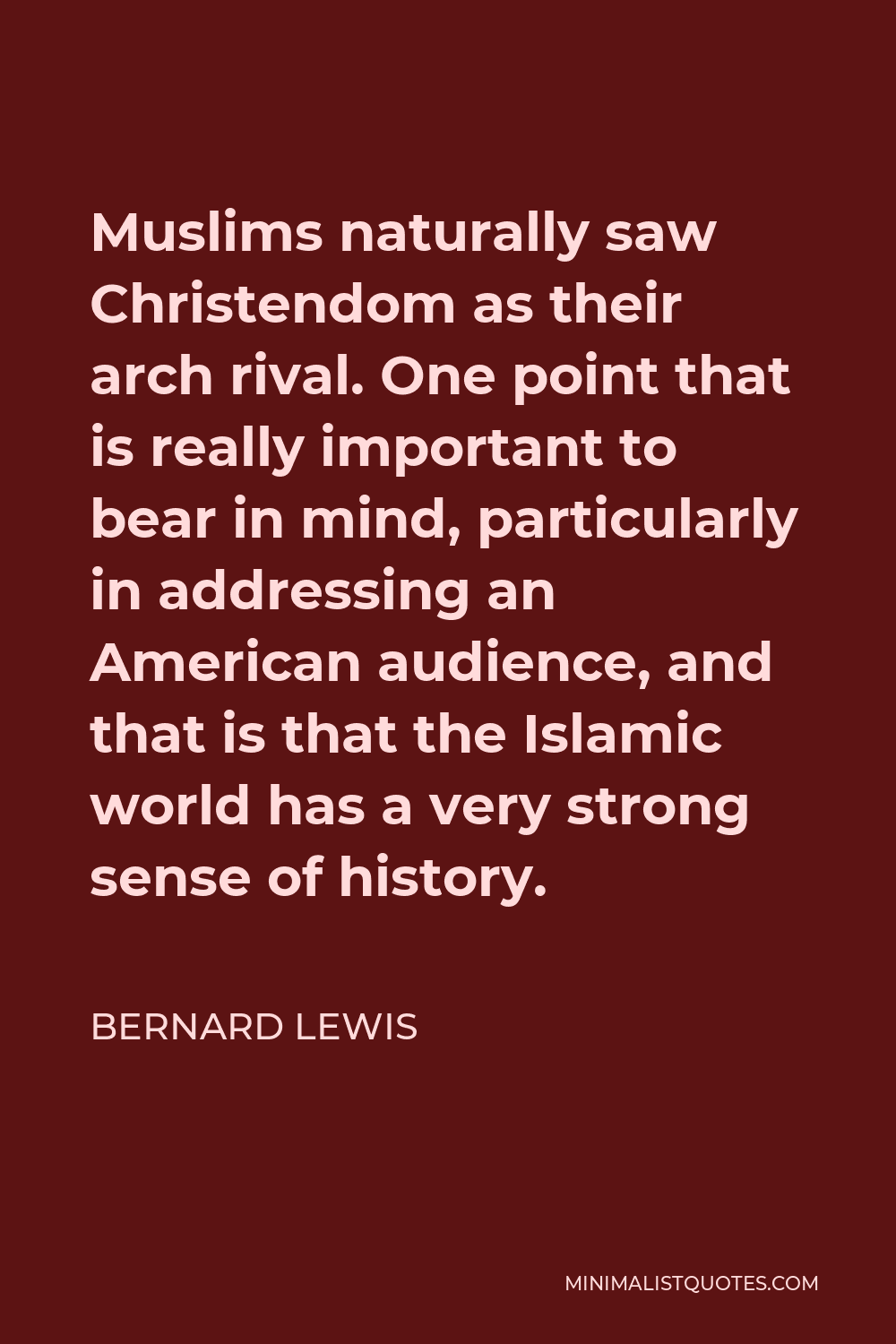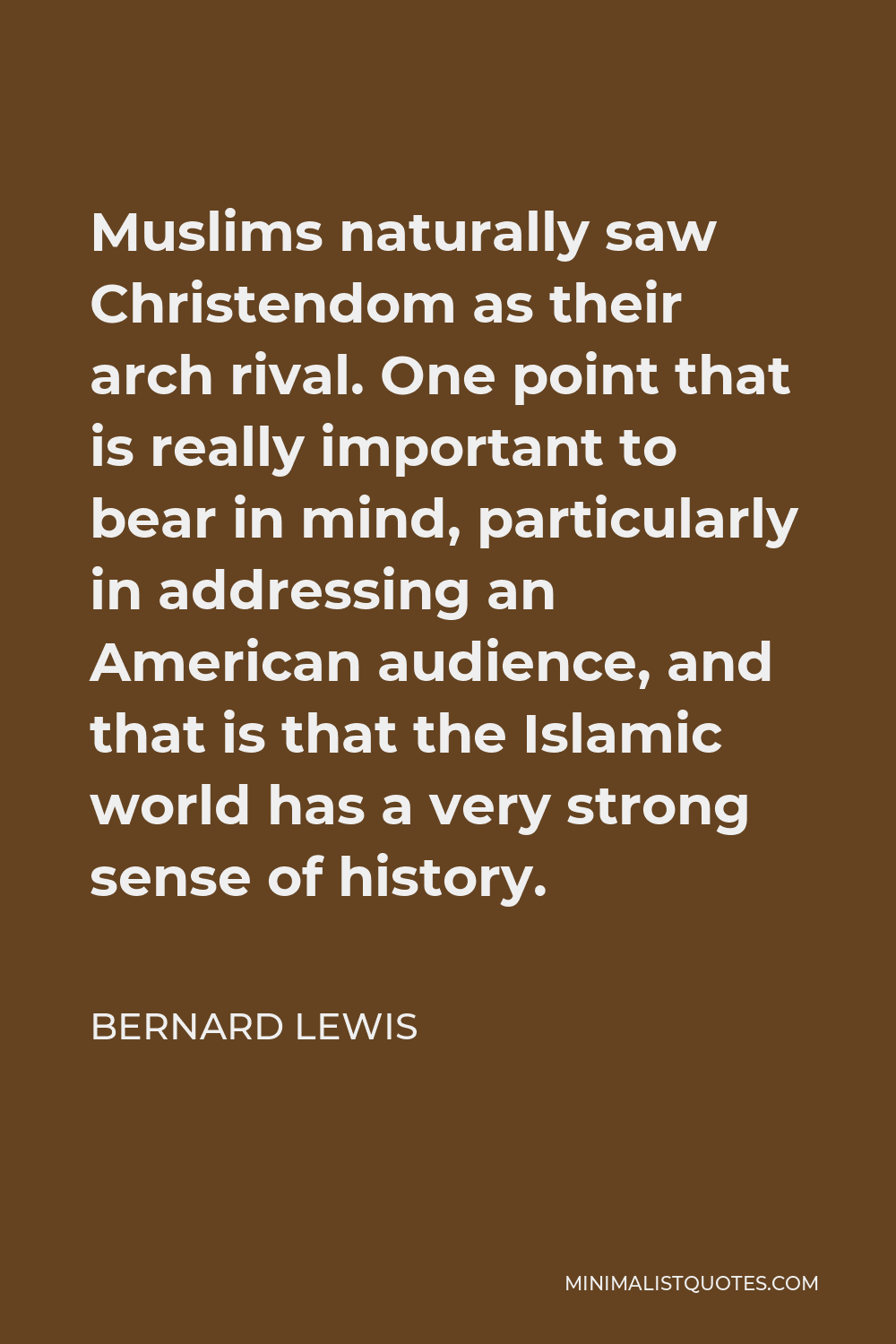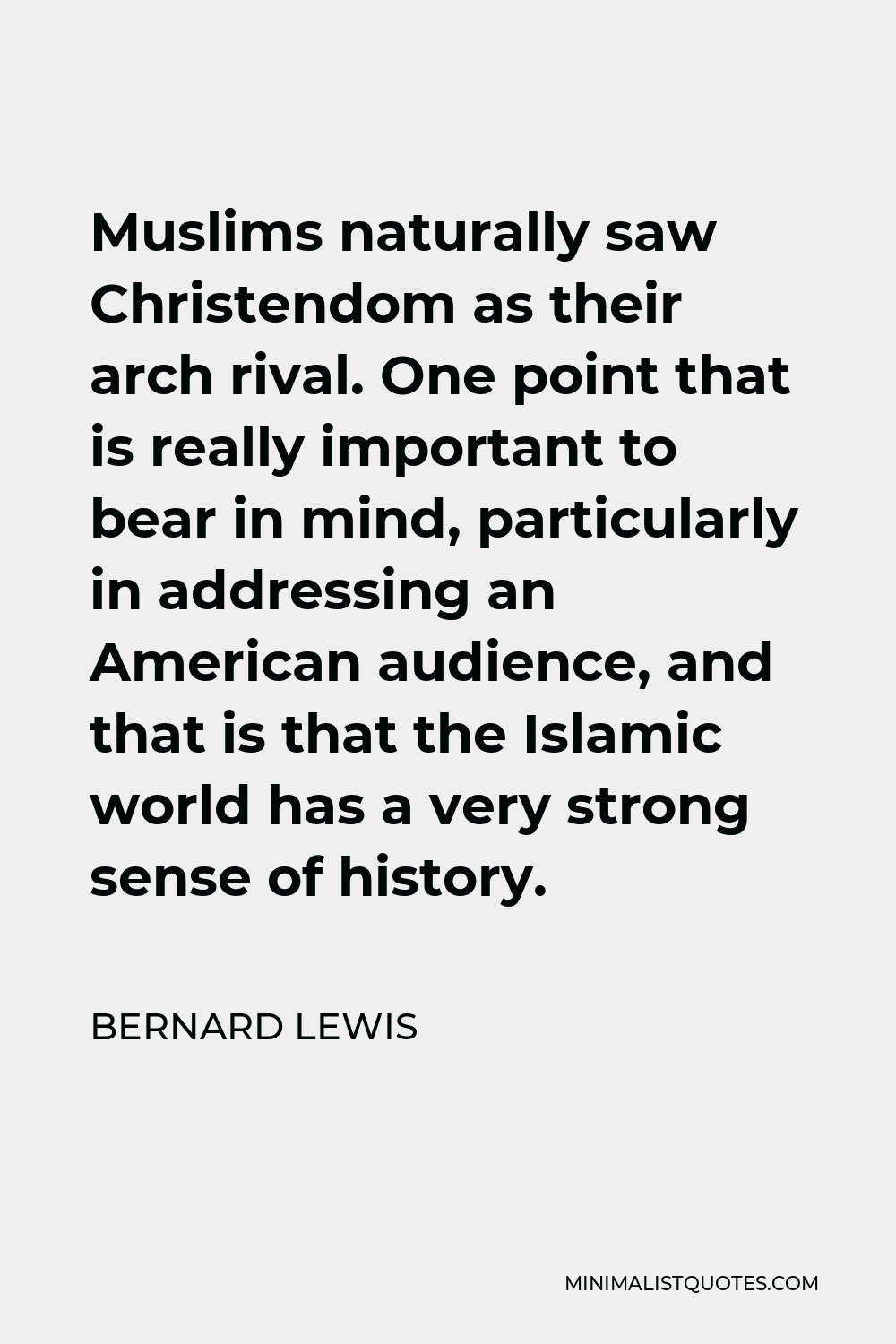The Jews were a component basically of two civilizations. In the Western world, we talk about the Judeo-Christian tradition and you talk about the Judeo-Islamic tradition because there were large and important Jewish communities living in the lands of Islam.
BERNARD LEWISMuslims naturally saw Christendom as their arch rival. One point that is really important to bear in mind, particularly in addressing an American audience, and that is that the Islamic world has a very strong sense of history.
More Bernard Lewis Quotes
-





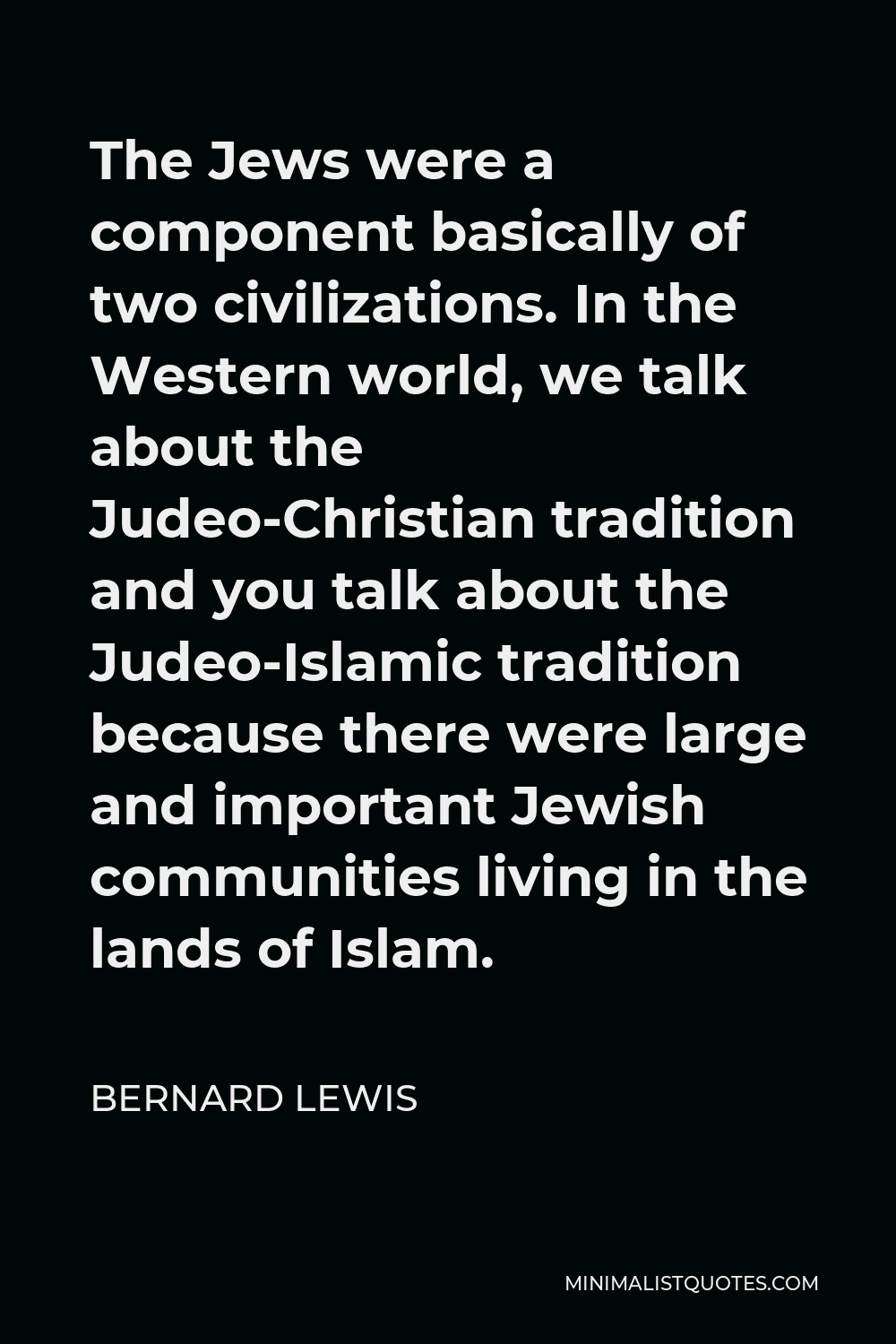
-





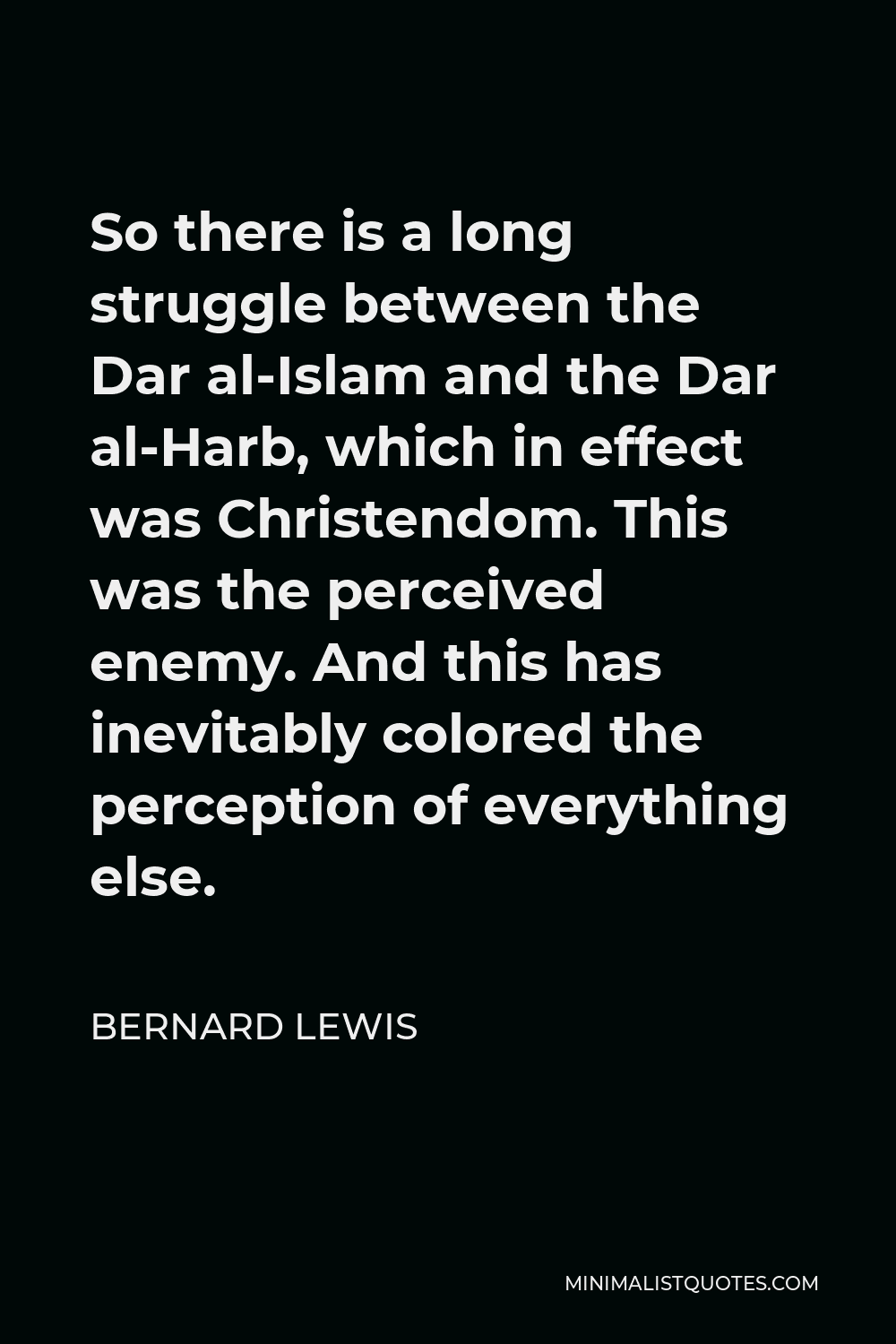
So there is a long struggle between the Dar al-Islam and the Dar al-Harb, which in effect was Christendom. This was the perceived enemy. And this has inevitably colored the perception of everything else.
BERNARD LEWIS -





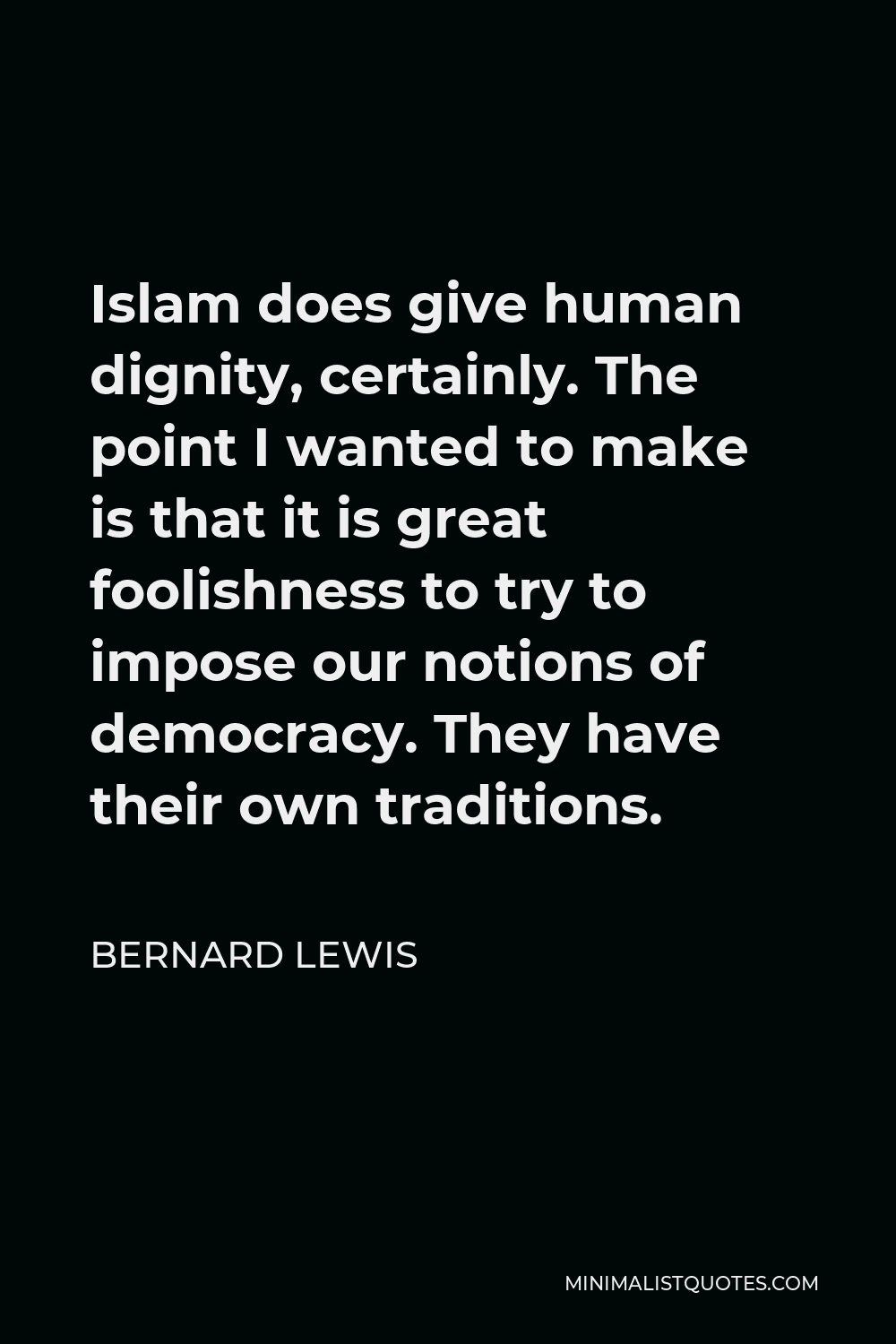
Islam does give human dignity, certainly. The point I wanted to make is that it is great foolishness to try to impose our notions of democracy. They have their own traditions.
BERNARD LEWIS -





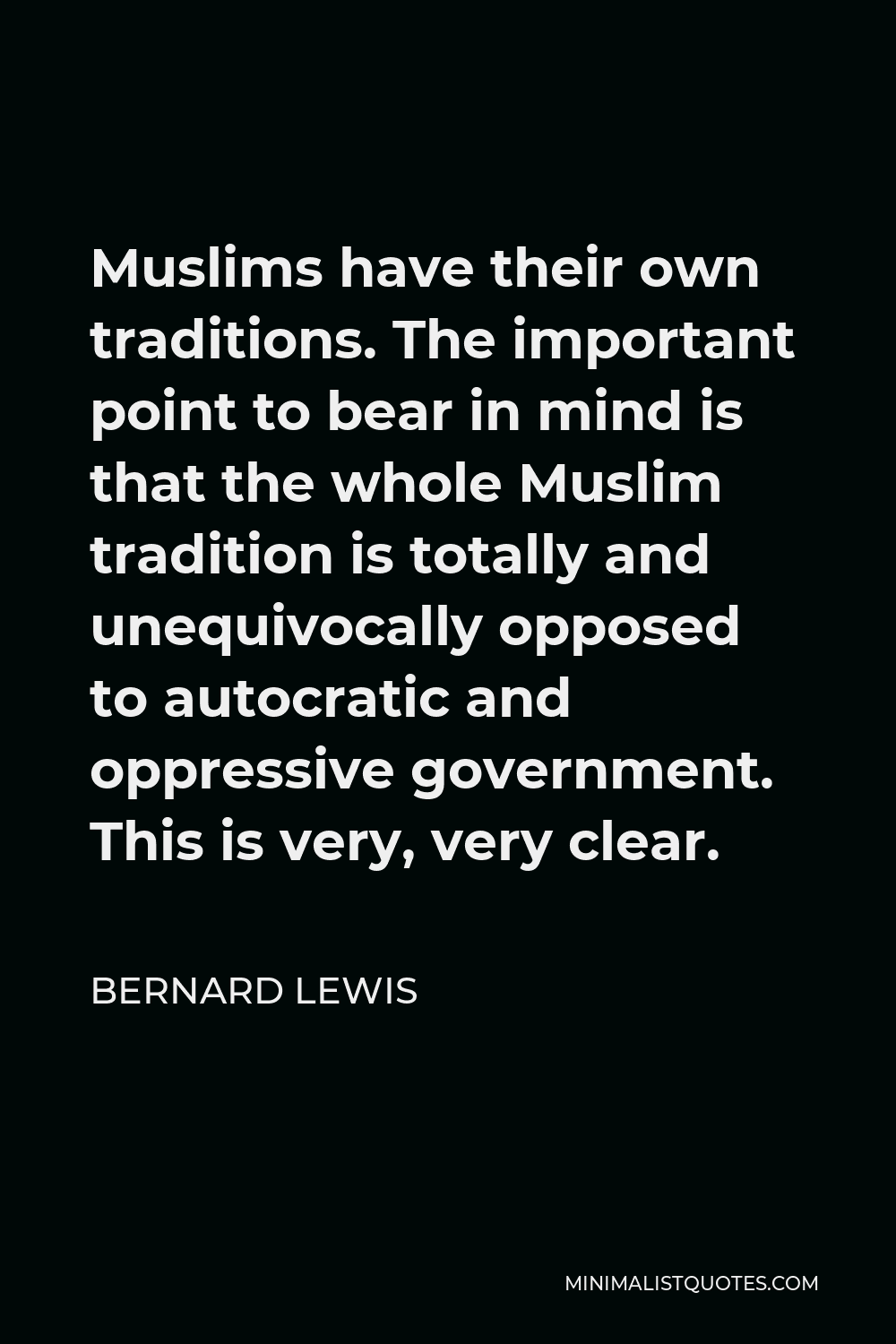
Muslims have their own traditions. The important point to bear in mind is that the whole Muslim tradition is totally and unequivocally opposed to autocratic and oppressive government. This is very, very clear.
BERNARD LEWIS -





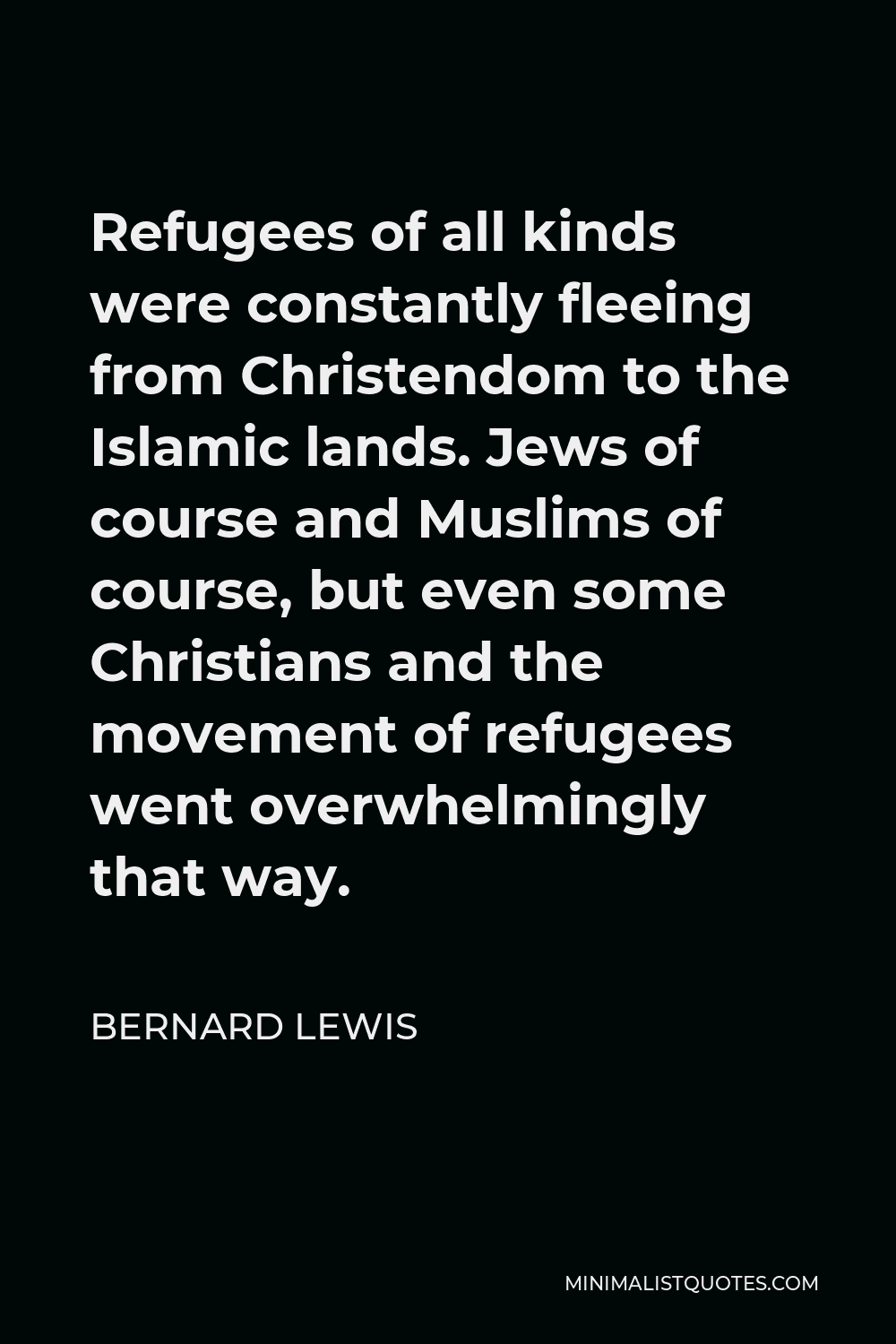
Refugees of all kinds were constantly fleeing from Christendom to the Islamic lands. Jews of course and Muslims of course, but even some Christians and the movement of refugees went overwhelmingly that way.
BERNARD LEWIS -





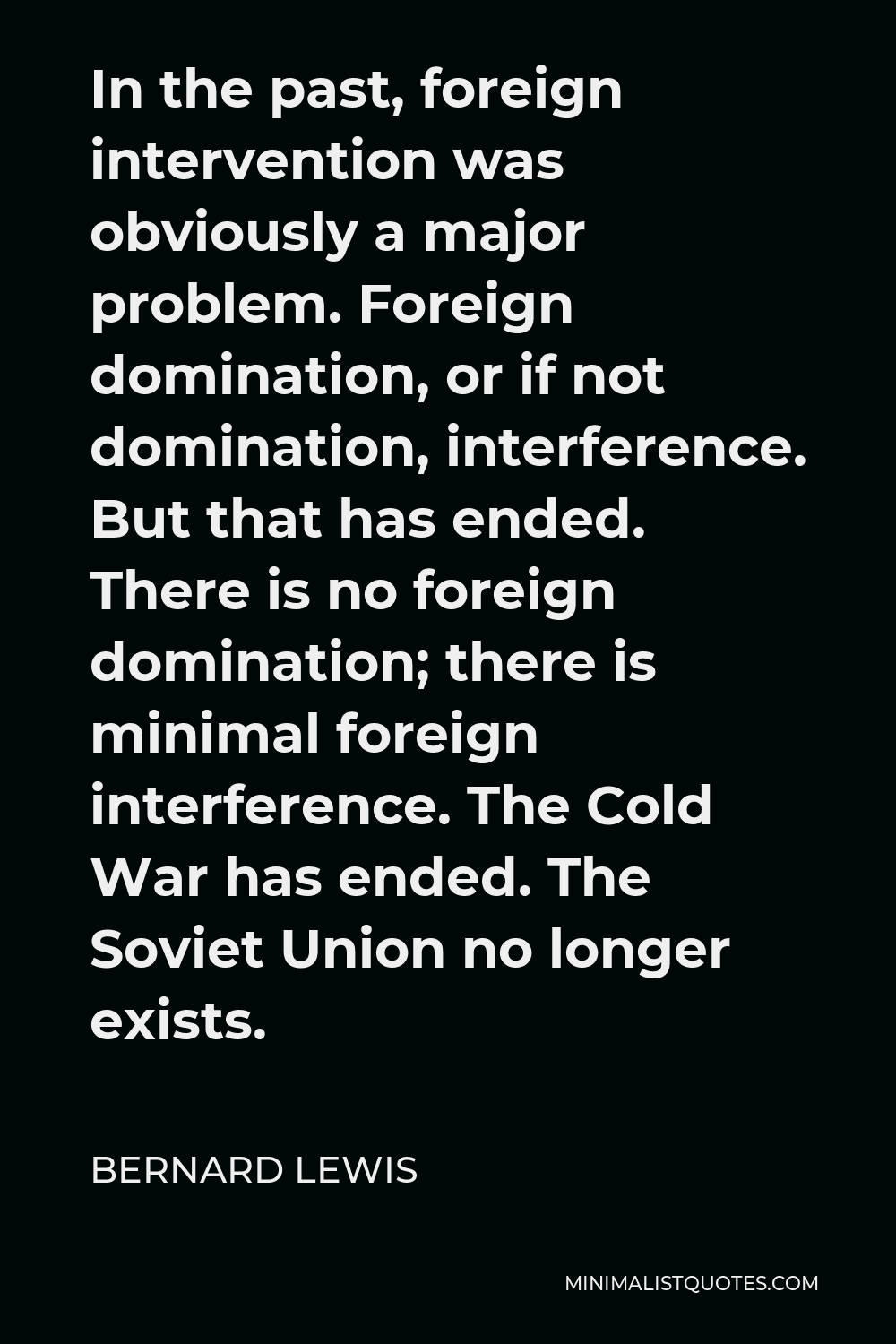
In the past, foreign intervention was obviously a major problem. Foreign domination, or if not domination, interference. But that has ended. There is no foreign domination; there is minimal foreign interference. The Cold War has ended. The Soviet Union no longer exists.
BERNARD LEWIS -





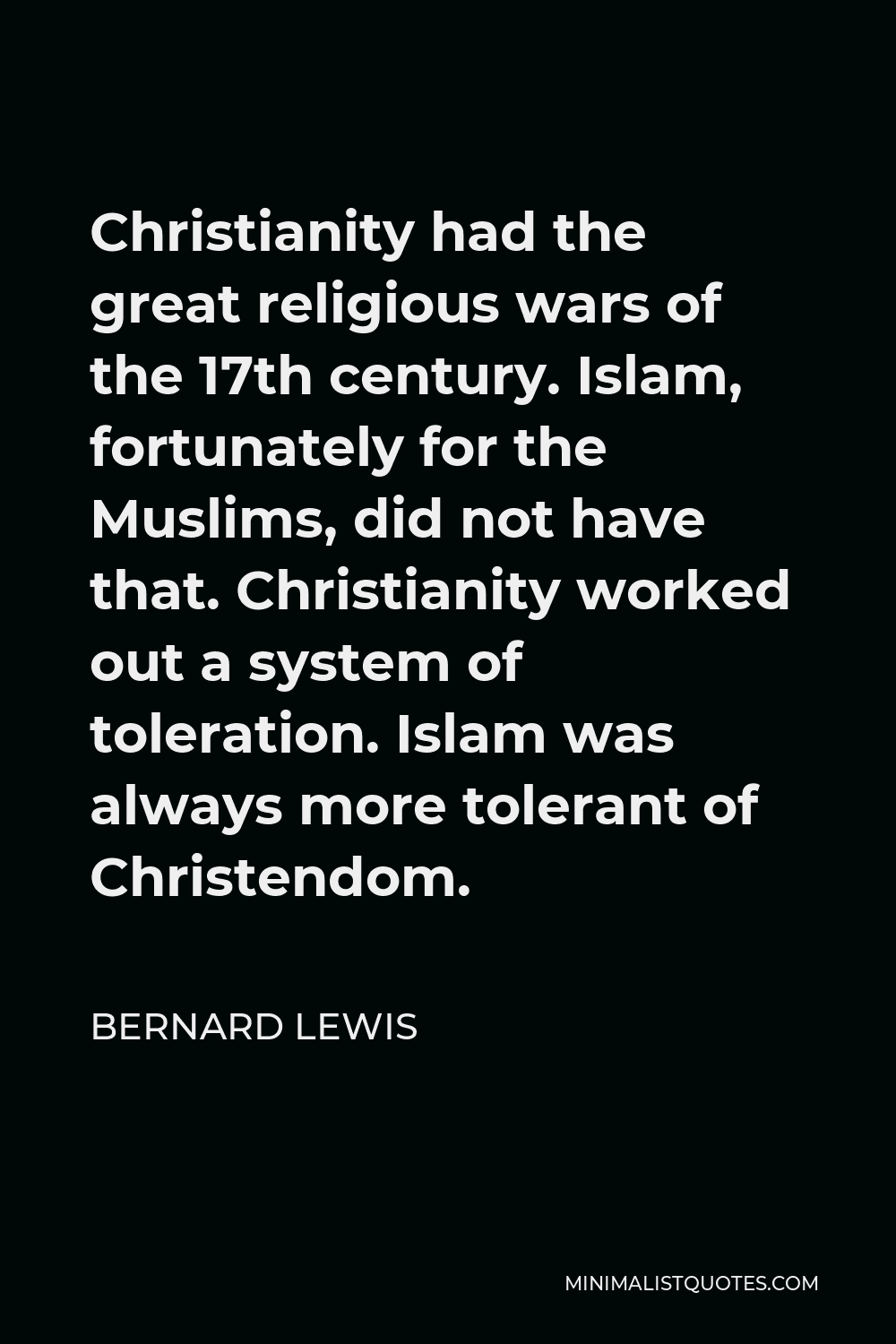
Christianity had the great religious wars of the 17th century. Islam, fortunately for the Muslims, did not have that. Christianity worked out a system of toleration. Islam was always more tolerant of Christendom.
BERNARD LEWIS -





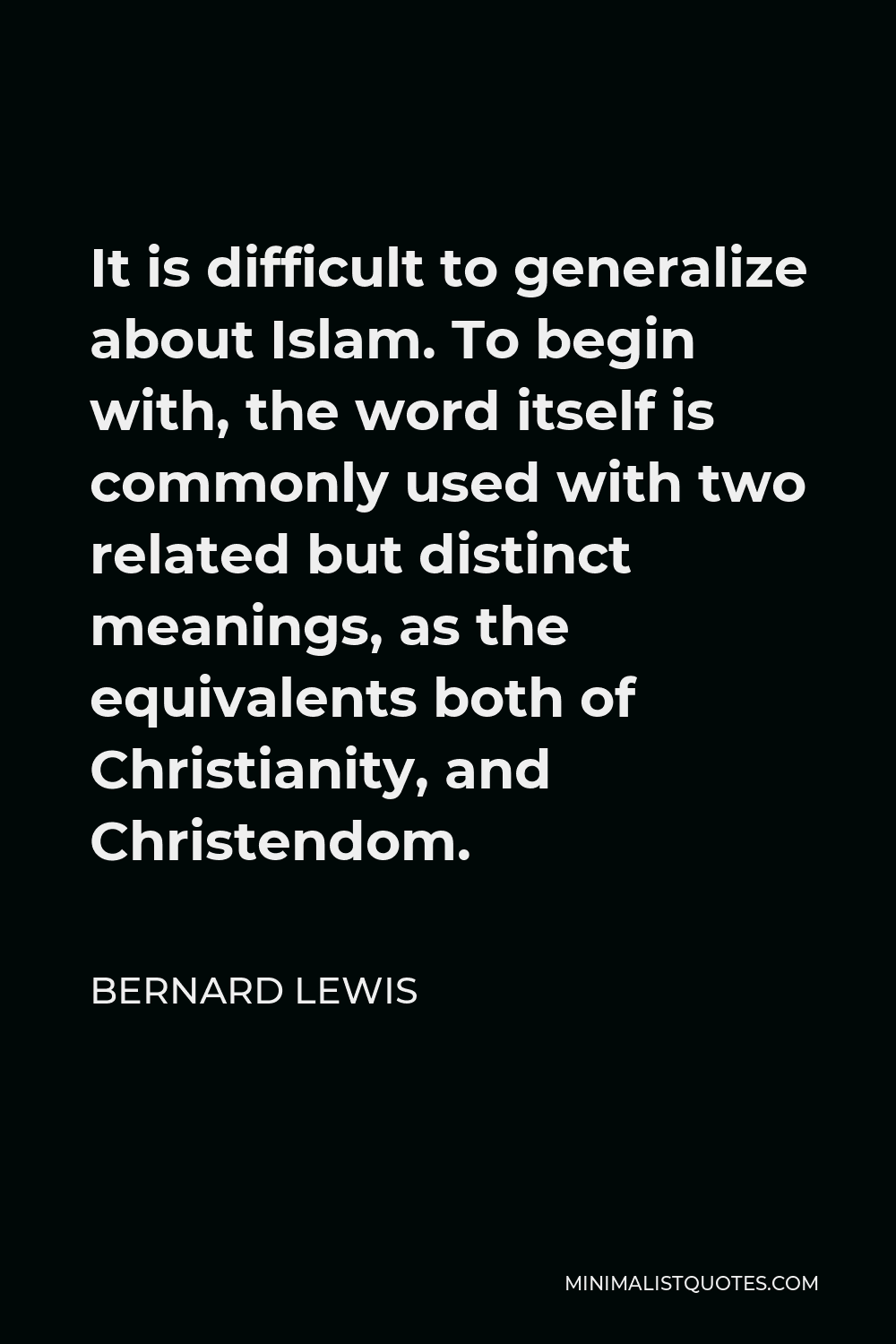
It is difficult to generalize about Islam. To begin with, the word itself is commonly used with two related but distinct meanings, as the equivalents both of Christianity, and Christendom.
BERNARD LEWIS -






If the conflict is about the size of Israel, then long and difficult negotiations can eventually resolve the problem. But if the conflict is about the existence of Israel, then serious negotiation is impossible.
BERNARD LEWIS -





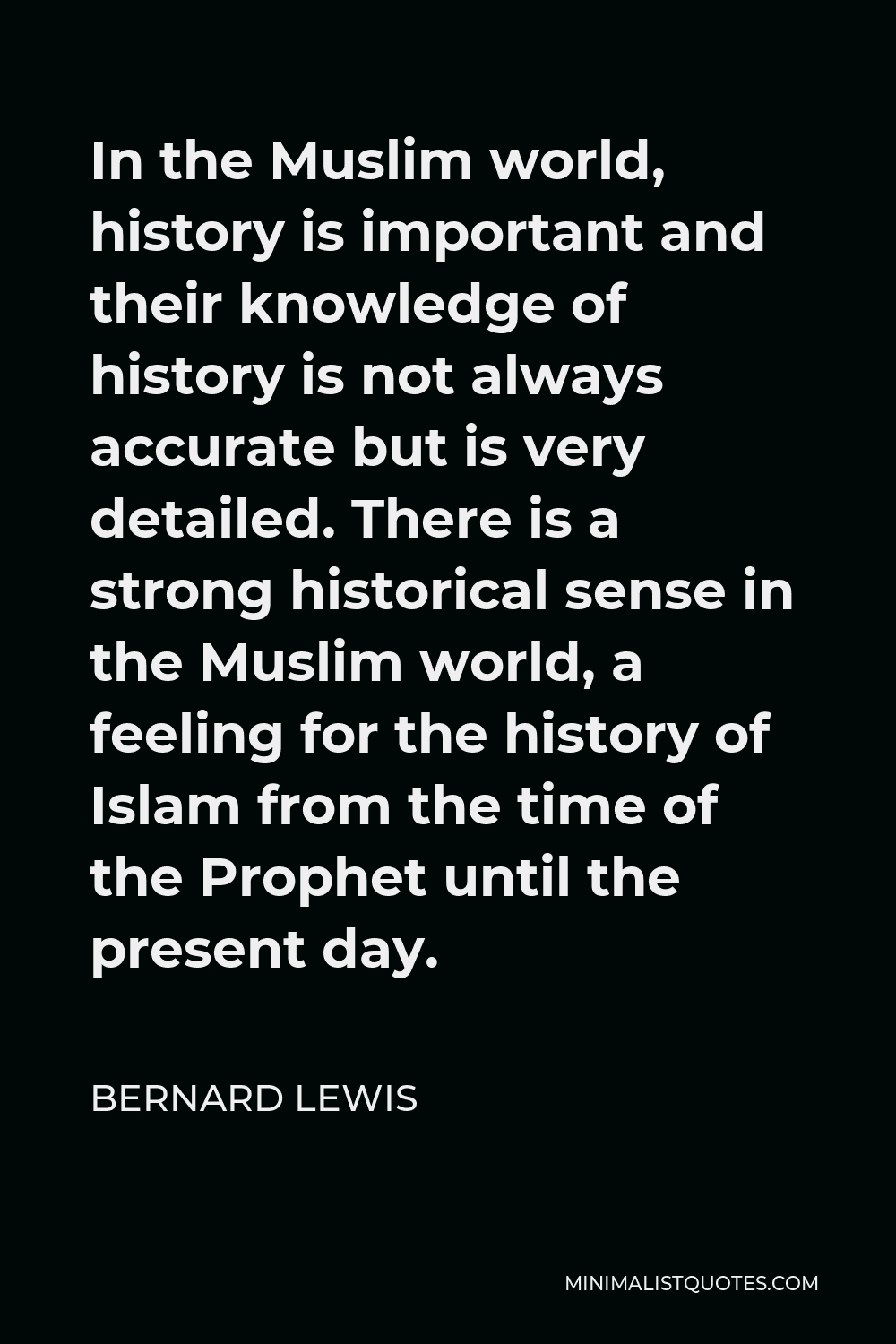
In the Muslim world, history is important and their knowledge of history is not always accurate but is very detailed. There is a strong historical sense in the Muslim world, a feeling for the history of Islam from the time of the Prophet until the present day.
BERNARD LEWIS -





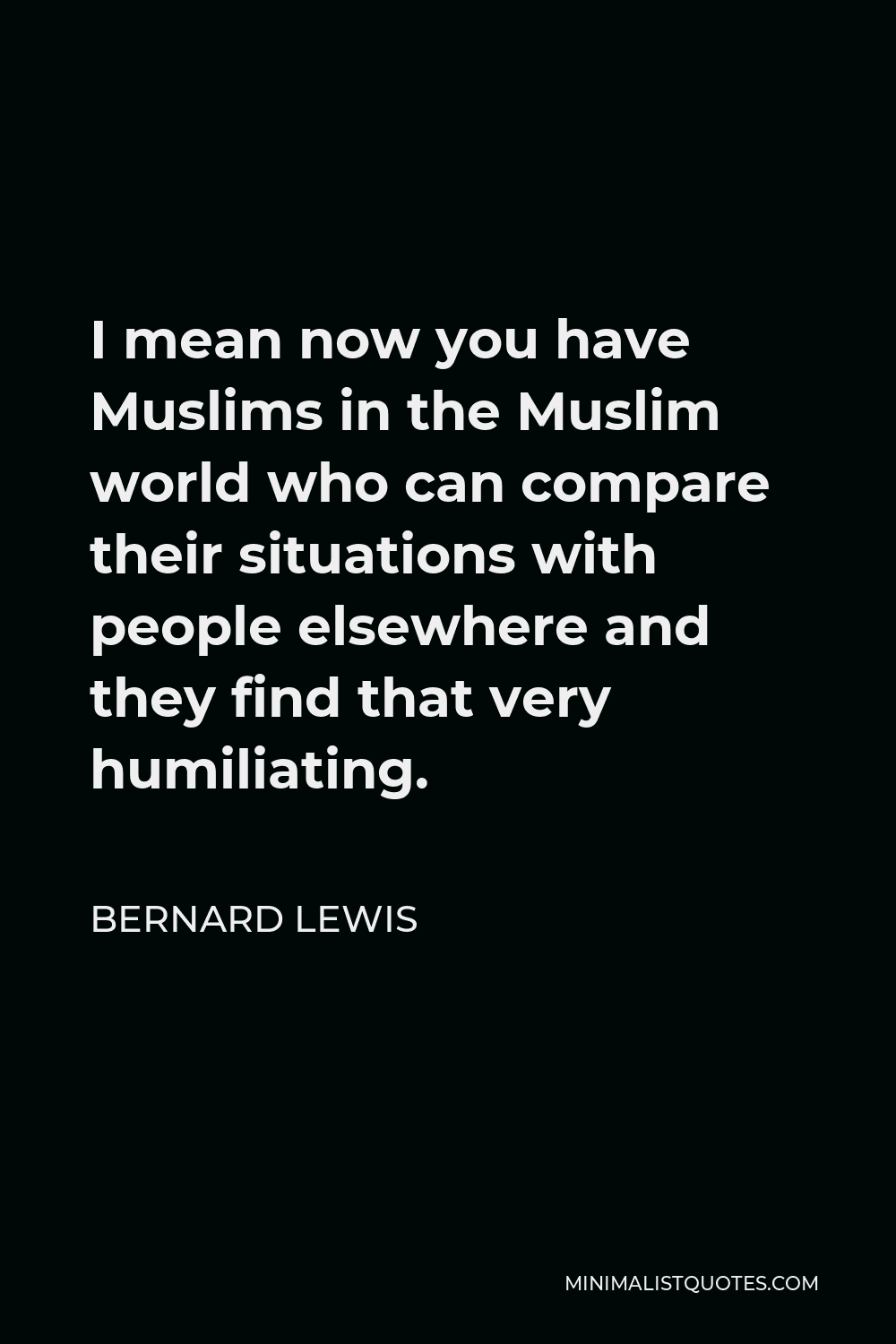
I mean now you have Muslims in the Muslim world who can compare their situations with people elsewhere and they find that very humiliating.
BERNARD LEWIS -





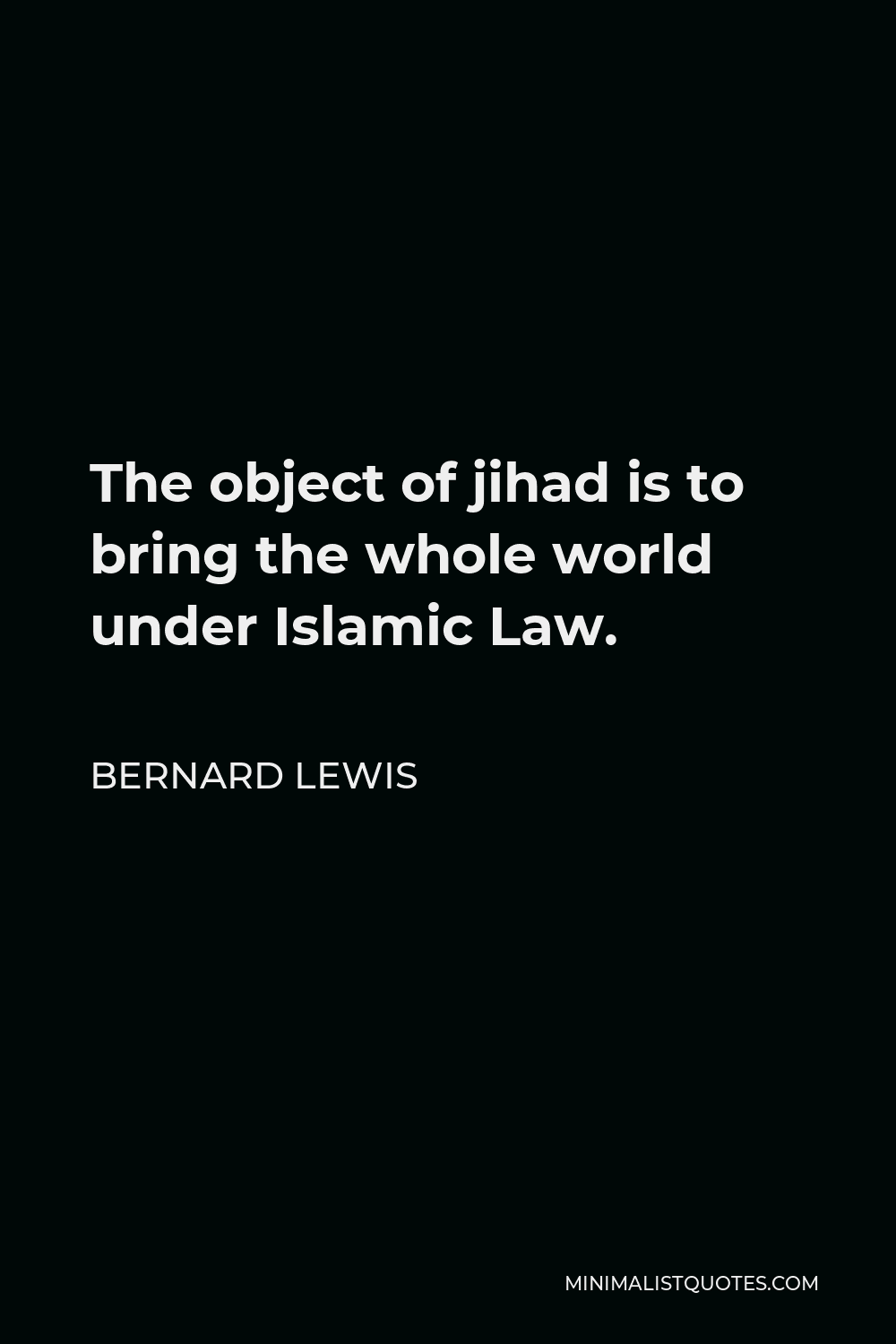
The object of jihad is to bring the whole world under Islamic Law.
BERNARD LEWIS -





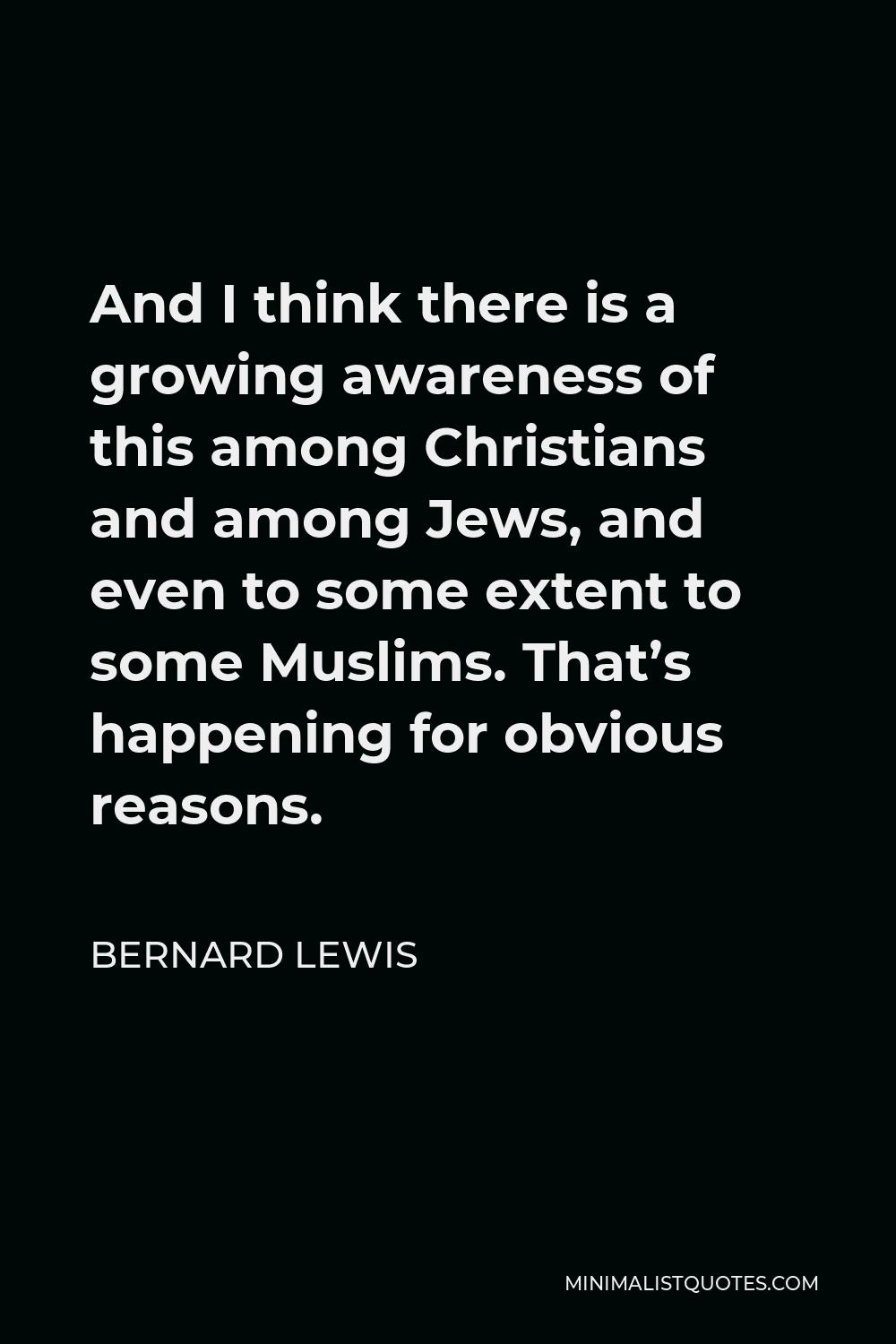
And I think there is a growing awareness of this among Christians and among Jews, and even to some extent to some Muslims. That’s happening for obvious reasons.
BERNARD LEWIS -





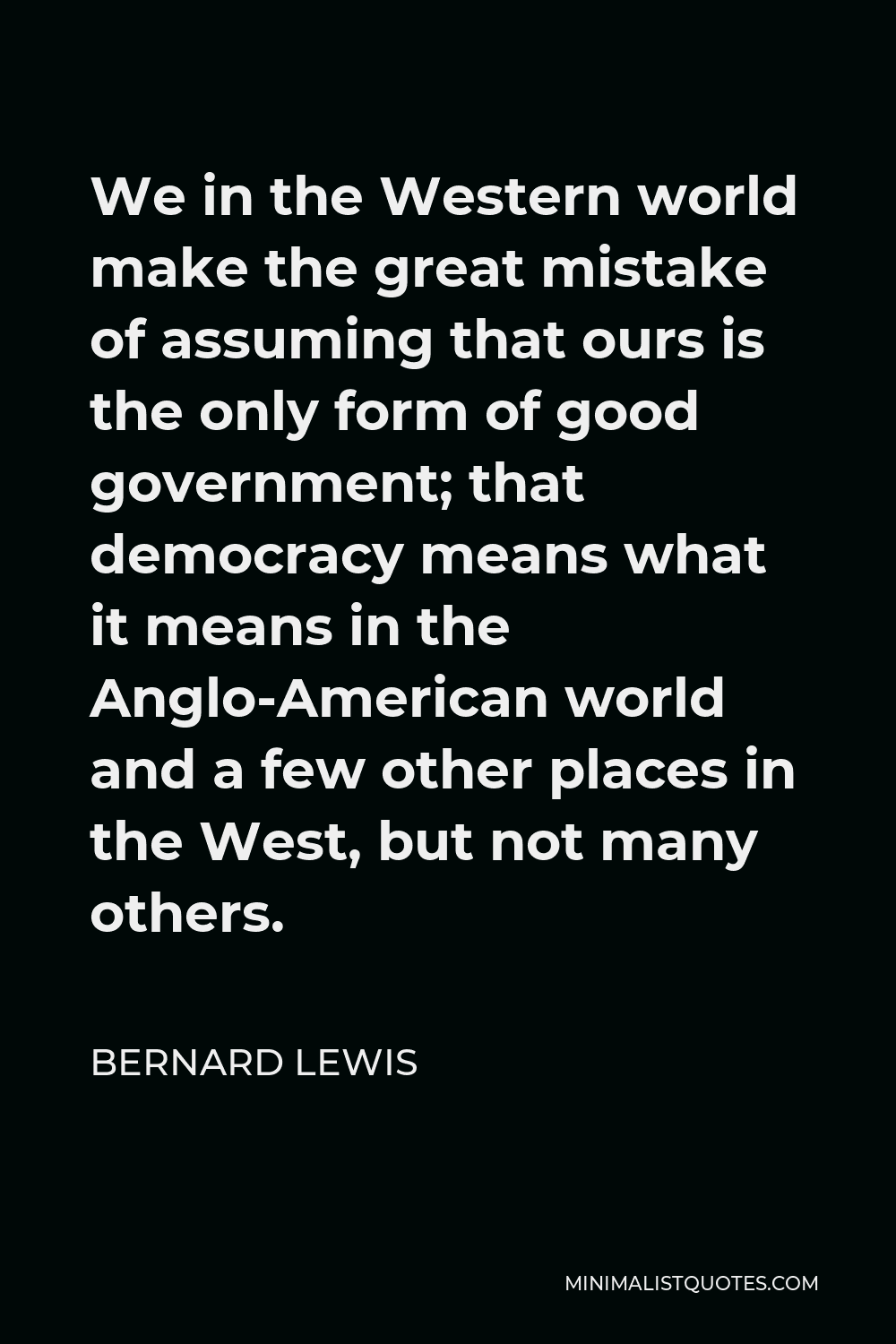
We in the Western world make the great mistake of assuming that ours is the only form of good government; that democracy means what it means in the Anglo-American world and a few other places in the West, but not many others.
BERNARD LEWIS -





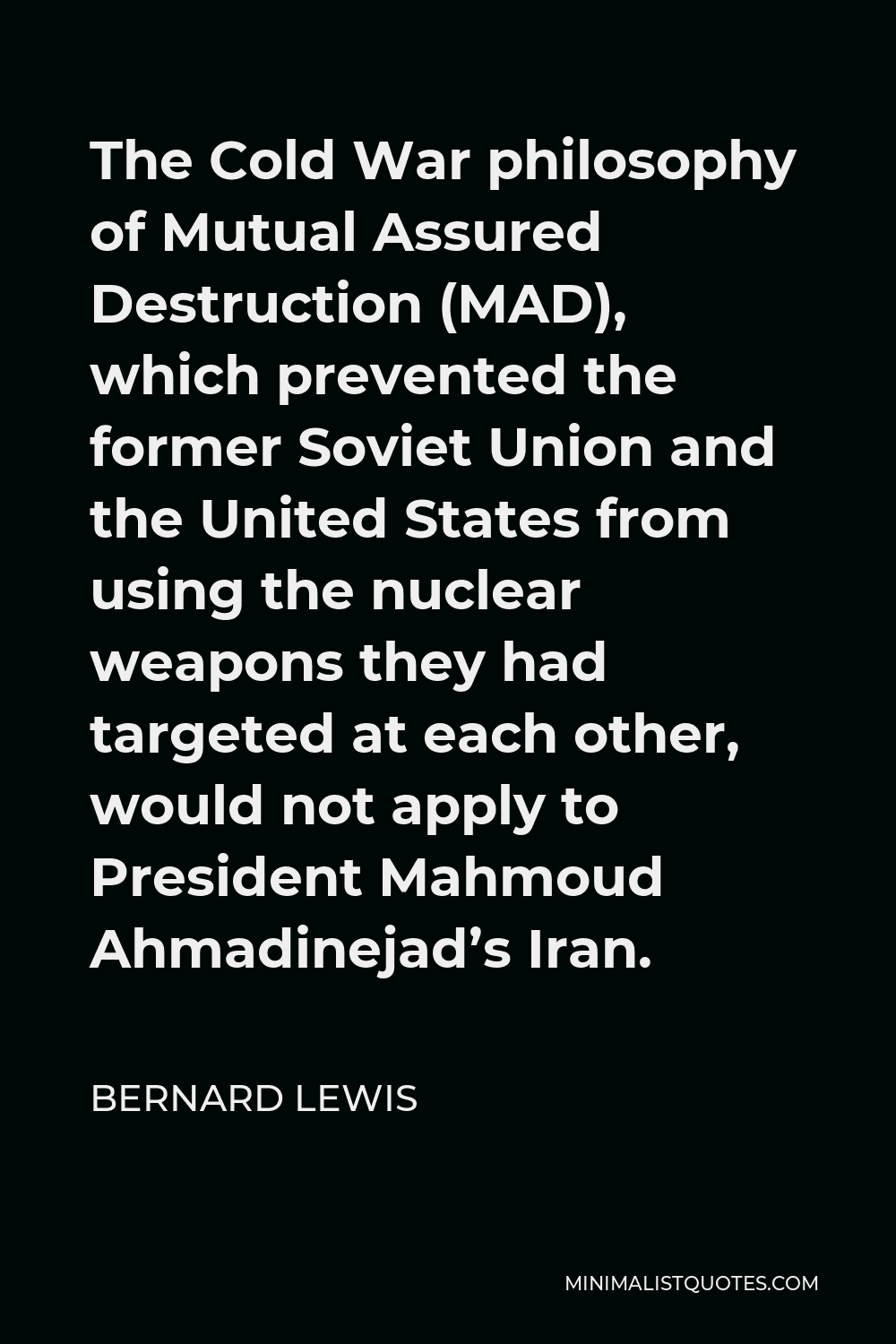
The Cold War philosophy of Mutual Assured Destruction (MAD), which prevented the former Soviet Union and the United States from using the nuclear weapons they had targeted at each other, would not apply to President Mahmoud Ahmadinejad’s Iran.
BERNARD LEWIS -





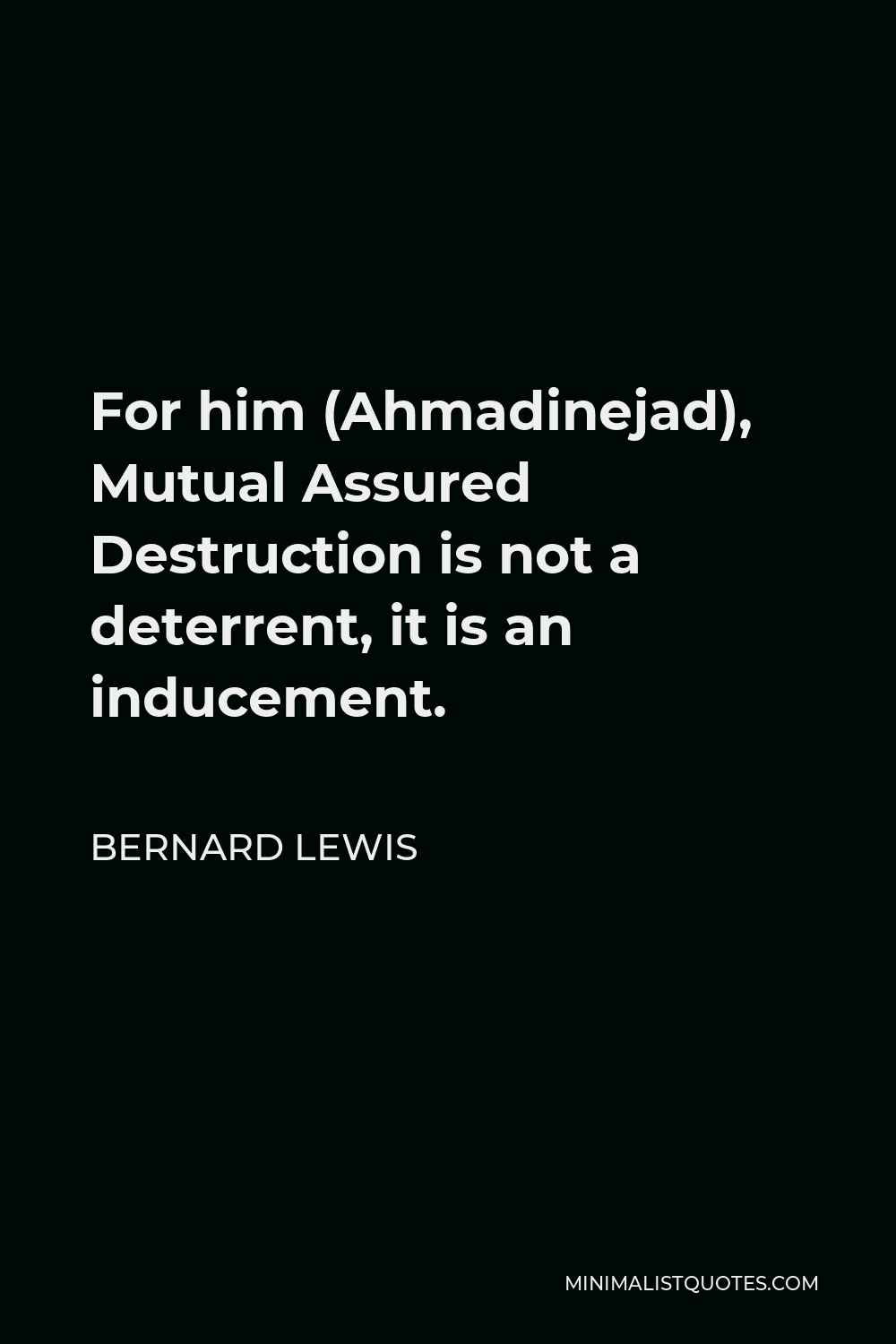
For him (Ahmadinejad), Mutual Assured Destruction is not a deterrent, it is an inducement.
BERNARD LEWIS

